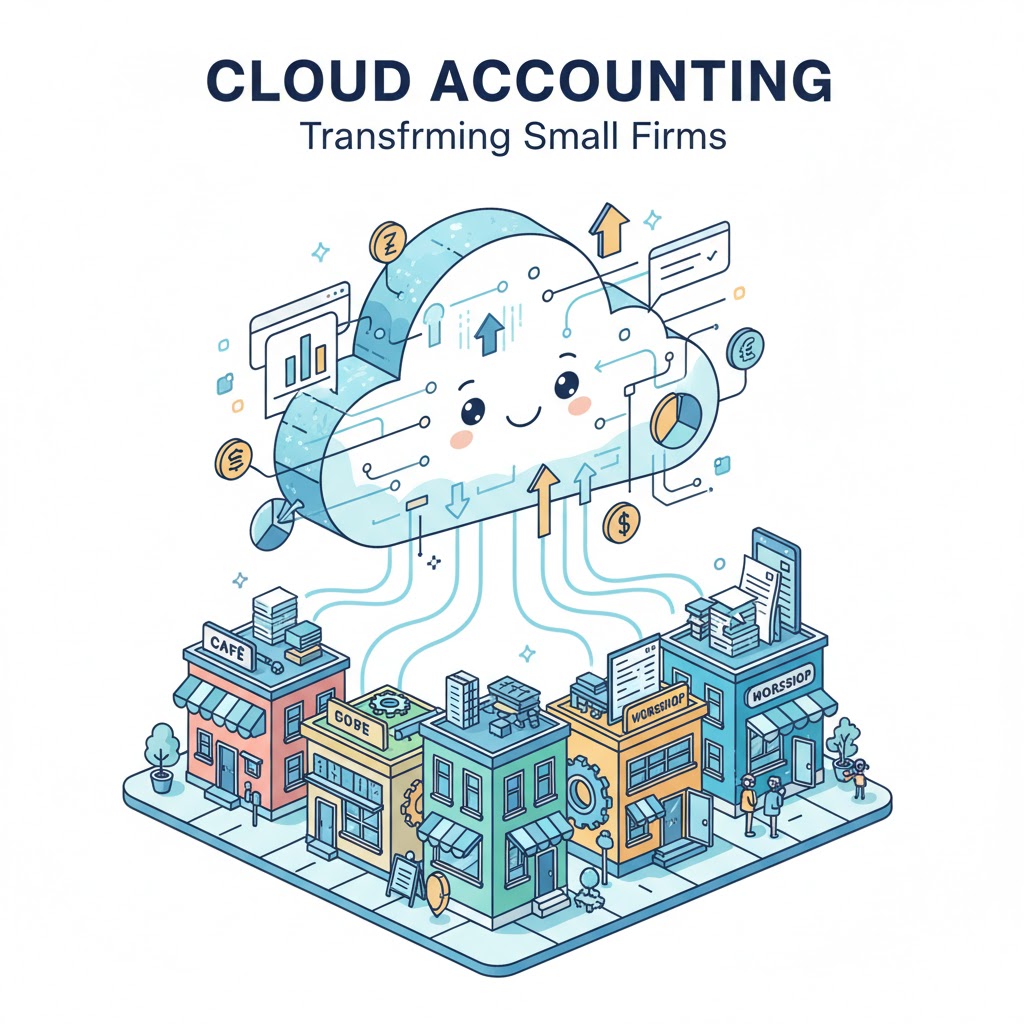Impact Of Cloud Accounting on small firms
Small businesses are always looking for smarter, more efficient ways to manage finances in our digital age. Cloud accounting has been one of the most transformative tools in recent years. Cloud accoun

Small businesses are always looking for smarter, more efficient ways to manage finances in our
digital age. Cloud accounting has been one of the most transformative tools in recent years.
Cloud accounting is one such innovation that has transformed the way small businesses manage
their books, saving time, resources, and aligning their financial processes on a single system.
Cloud accounting is one such innovation where businesses use online accounting software hosted
on remote servers. Unlike traditional systems which need to be installed and also manual
backups, cloud accounting enables users to access financial information in real time from any
device with an internet connection.
Benefits of Cloud Accounting
• Instant Access: Business owners and accountants can access financial data anywhere, and
anytime, which helps in decision-making.
• Cost Efficiency: Cloud accounting reduces the need for expensive infrastructure and IT
maintenance. Most cloud software is subscription-based and budget-friendly.
• Automatic Updates: Software updates are automatic, ensuring businesses always have the
latest features and security.
• Collaboration: More than one person can work on the same data at the same time, which
boosts teamwork.
• Security of Data: Top cloud providers offer high-level encryption and data backup,
which drastically reduces risk.
• Automated Help Saving Time: Invoice generation, tax calculations and reporting will all
be automated and help save precious time.
Cloud Accounting Dilemmas Challenges
• Dependency on the Internet: Without internet connectivity, accessing financial data
becomes difficult , a poor connection can disrupt operations.
• Subscription Pricing: Despite the affordable initial capital, recurring monthly or yearly
payments will be expensive and may pose challenges for micro businesses.
• Data Security Issues: Hosting confidential information can be dangerous due to possible
hacking and unauthorized use by other individuals or companies.
• Learning Curve: Switching from traditional methods to cloud platforms may require
training and adjustment.
• Limited Customization: Some platforms may lack industry-specific features required by
certain businesses.
AI INTEGRATION
Cloud accounting software like QuickBooks, Zoho Books, and Xero has AI tools for automating
tasks that are routine. For instance, AI can categorize expenses automatically, remind customers
to pay their bills, and identify errors or unusual transactions. This cuts down on valuable time to
small business owners and reduces the possibility of human error.
A cloud accounting with AI can be used by a small retail shop to manage inventory, sales reports
and tax filings in one place without any need for paperwork.
Conclusion
Cloud accounting is a game changer for small business as it provides the tools to make
accounting tasks simpler and more transparent with financials. Cloud accounting is a good way
for small businesses to make their financial processes simpler and more modern. Yes, there are a
few challenges, but in the long run, the effect is positive, bringing financial management to be
more accessible, efficient and scalable.